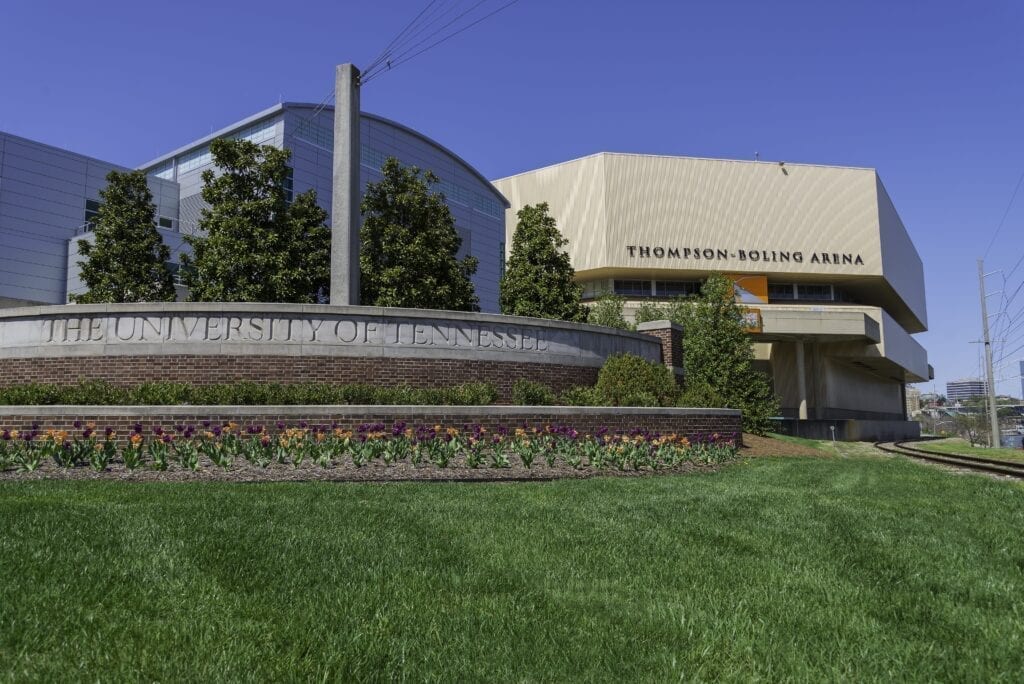Dr. Renato Cruz de Castro speaks on international and security relations
Dr. Renato Cruz de Castro spoke at the Baker Center on Monday night about international and security relations between the United States, China and the Philippines.


//Photo by Ryan McGill
The Howard Baker Center for Public Policy hosted Dr. Renato Cruz de Castro on Monday night as part of their Global Lecture series.
After writing over 80 articles on international relations and security, Castro now travels to different universities, speaking about United States, Chinese and Philippine relations.
Castro’s lecture was anticipated by a capacity crowd in the Baker Center’s Toyota Auditorium.
“I noticed that by Thanksgiving Monday, my American classmates would start leaving campus, so I’m surprised by the turnout,” Castro said.
Castro’s lecture centered around the disputes of Chinese expansion into the international waters of the South China Sea and the history of US-Philippine relations. He shared the complex history of the American-Filipino relationship, elaborating that there have been both disputes and alliances over the years.
Castro stressed the idea that both countries have been advantageous to each other, as the United States has acted as a “shore balancer and strategic balancer in Southeast Asia,” providing the Philippines with resources it lacks. The Philippines has provided its strategic geographic location in return.
Castro also highlighted the recent expansionary actions taken by China in the South China Sea and the international community’s response.
“China has already become the second largest economy in the world, their navy’s purpose now is to push America out of the island chains in the South China Sea,” he said.
The Philippines’s strategic location in the South China Sea has caused conflicts with China over resources and access rights before, but now the Philippines is facing an economic and military dilemma.
According to Castro, an alliance with the United States is preferable to an alliance with China for the Philippines.
“The US plays a very important balancing role because it does not have any territorial disputes with any countries in the region. It’s a Pacific power, but not an Asian power,” he said. “The goal of the United States is to maintain a balance of power in both Europe and Asia so that neither region could produce a power that could threaten its interests.”
The recent move by Filipino leadership towards an economic partnership with China was the result of a weakening in US military presence in the Philippines as a result of discontent with the US in the Philippine Senate.
“No amount of defense build-up would allow the Philippines to defeat China, they must rely on the support of the US,” Castro said. “The Mutual Defense Treaty [between the Philippines and the US] does not provide for a very specific response from the United States, which is why [President] Duterte has started to embrace the Chinese.”
President Duterte has recently been dissatisfied with the US, and has spoken about terminating the joint patrol with the US in the South China Seas. However, according to Castro, the Filipino people think highly of the United States, who have proven to be beneficial to the country in the past, so Duterte has had to walk back his rhetoric.
Castro elaborated that US military exercises will continue; however, the Navy and Marine exercises will cease so that China will not be antagonized.
Castro said that Trump represents a complete change from the Obama administration’s policies in regards to the future of Filipino-American relations under President-elect Trump.
“The basis of [his] rebalancing will be rebuilding the US Navy,” Castro said. “It puts China in a classic security dilemma when you simply rely on military capability unlike the approach of President Obama, which uses diplomacy and regional organizations.”
Castro was cautiously optimistic about the relationship between Trump and Duterte. He noted that Duterte admired Trump’s attitude and is excited to work with him when he takes office in January.
Trump’s hard stance against China puts an open strain on Duterte to balance the influence of the two global powers. Who Duterte will embrace and how it will affect the situation in the South China Sea remains to be seen.

